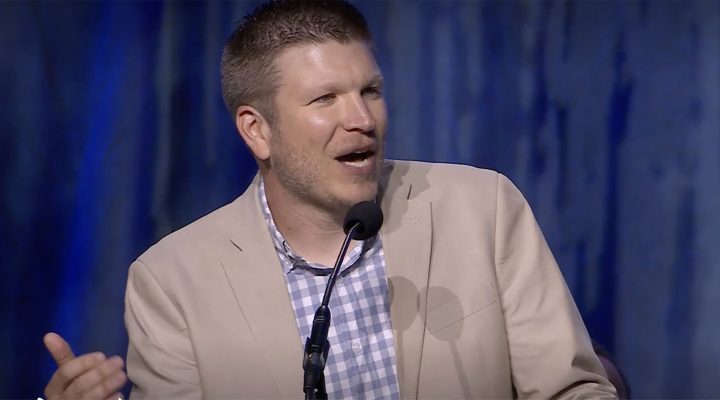Because of the massive size of the Southern Baptist Convention, it is nearly impossible to bring about internal change. Nowhere is that more evident than in the failure of two consecutive sexual abuse reform task forces to bring meaningful change.
Ironically, among the dozens of motions made at this year’s SBC annual meeting in Indianapolis, a majority called for creation of some kind of task force or study group to explore a variety of issues.
Even getting a task force appointed is difficult in the SBC because the standing rules require that most motions made from the convention floor get referred to the SBC Executive Committee or one of the SBC entities. The only way to overcome such referrals is for someone to make a motion to overrule the Committee on Order of Business and then get a majority vote of messengers to agree.
On Tuesday afternoon, June 11, convention messengers heard a lengthy report from Josh Wester, chairman of the second abuse reform task force. That task force put forward two recommendations that were adopted but some in the audience found insufficient to the charge given.
Wester owned up to that assessment and gave a surprisingly candid explanation.
“Task forces have some power; they apparently have very limited power when it comes to doing things in the SBC,” he said. “And I say that carefully because what you would assume if you were a messenger sitting out there is that you appoint a task force so that it can act with some measure of independence. But the reality is within our system, any task force is going to be relatively at the mercy of the various apparatus that that makes up the SBC.”
“Task forces have some power; they apparently have very limited power when it comes to doing things in the SBC.”
Even with $4 million pledged to support the abuse reform task force work, “We were in a situation where the funds were never given to the Executive Committee and our task force had to go through a two-step process of approval for any given set of expenses. That on top of the fact that it required a substantial amount of outside counsel … and contracting power to do some of the things we were called to do.
“Our report basically reflects the fact that we took this work as far as we were allowed to take it.”
Later in response to another question, Wester told about being called to “an emergency meeting” on Jan. 3 with SBC President Bart Barber, the interim president of the SBC Executive Committee, the chairman of Executive Committee trustees and legal counsel “to discuss what was a very serious set of insurance concerns that had clear implications or ramifications for abuse.”
He continued: “At that time, it was basically made clear to us that there was no future — this is January 3 — there was no future for robust abuse reform within the SBC. In other words, maybe we could do some things inside the SBC but that was undefined and certainly not robust, so we were basically told, ‘You can pump the brakes and stop working toward abuse reform or you can find another way.’
Confronted with finding “another way,” Wester said the only thing his task force could come up with was “that there’s going to have to be some means outside of the convention to help get this done. That is where the idea for ARC, the Abuse Response Commission, came from. It was basically this task force saying, ‘If there’s no other way to do something good to move the ball forward on behalf of Southern Baptists, we members of the task force will take this on and try to do our best.”
He praised new Executive Committee President Jeff Iorg, whom he said “has worked very, very hard to reopen the pathways to be able to ensure that a robust abuse reform can happen inside the SBC.”
Yet this story illustrates the inertia wielded by SBC entity heads and the organizations they lead. The vast majority of the SBC’s money is allocated to those entities, and very little is available for special projects outside their control.


